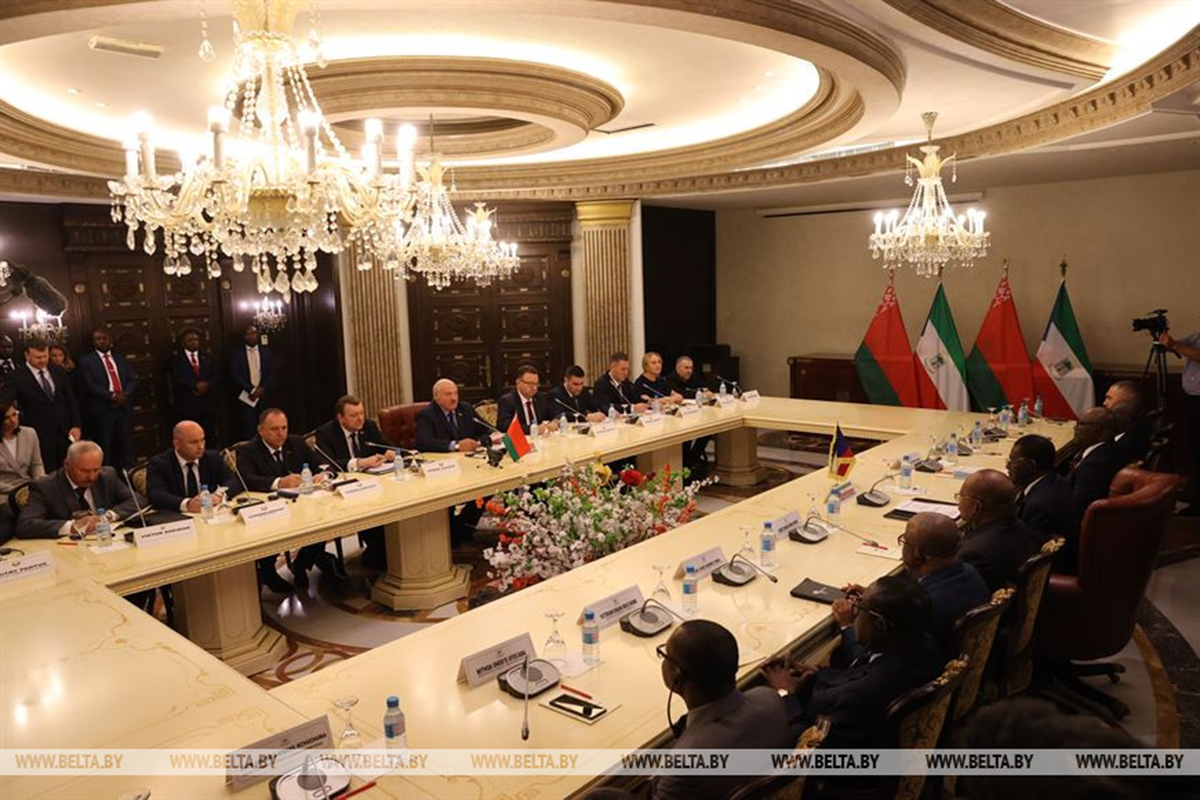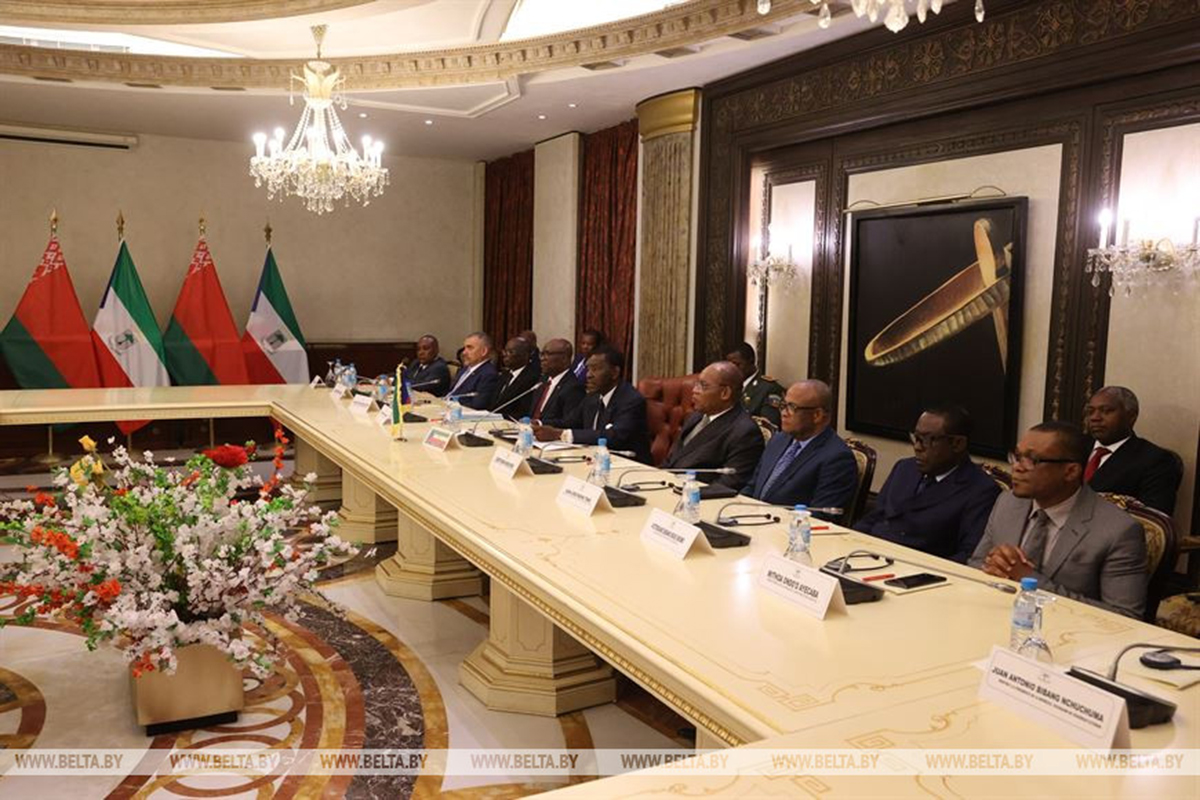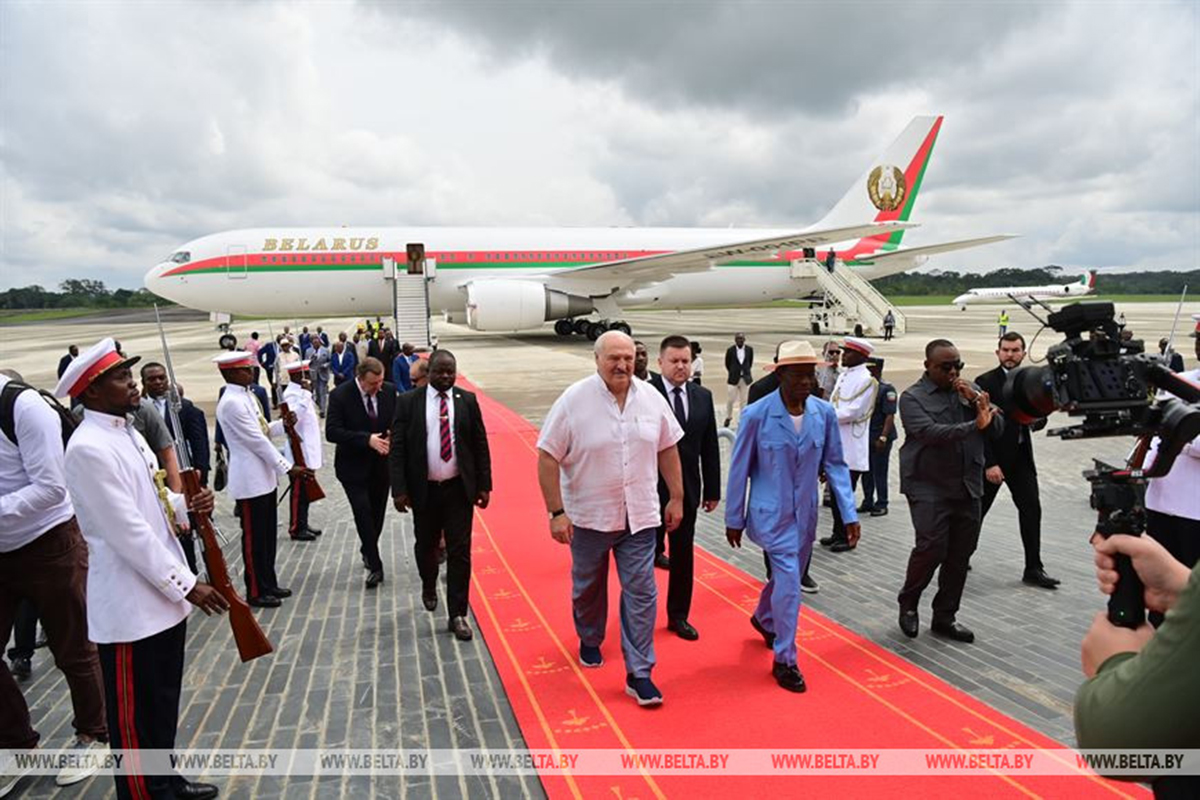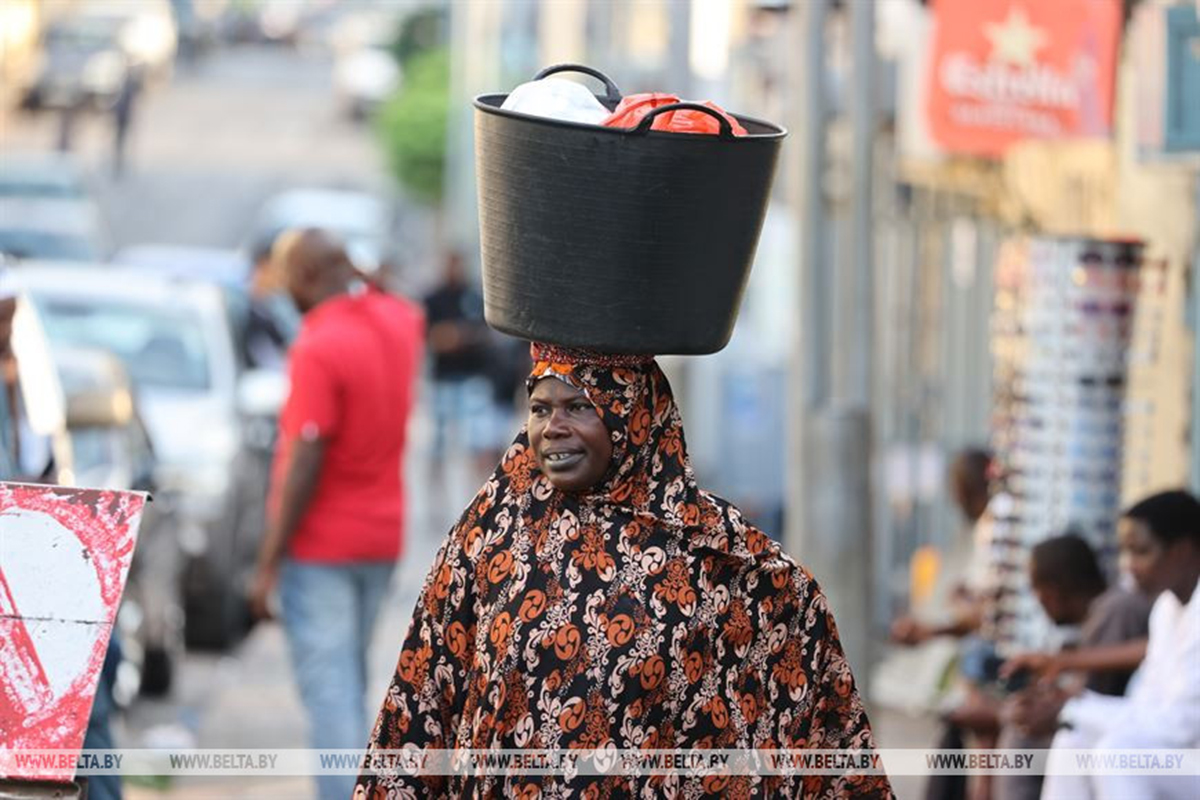Lukashenko's official visit to Equatorial Guinea ended
The official visit of the President of Belarus, Aleksandr Lukashenko, to Equatorial Guinea has ended, BelTA reports

The Belarusian leader arrived in Equatorial Guinea on December 9th, and official talks with President Teodoro Obiang Nguema Mbasogo took place in the evening of the same day in the capital city of Malabo located on the island part of the country. As a result of their negotiations, the presidents signed a roadmap for the development of co-operation between the Republic of Belarus and the Republic of Equatorial Guinea.

The 2024-2026 roadmap was developed taking into account the needs of the Equatoguinean side, and it is comprehensive. The document covers fifteen areas of interaction, including co-operation projects, the supply of Belarusian equipment and the organisation of its maintenance, the agricultural sector, healthcare, pharmaceuticals, sales of medical equipment and forestry.
A package of documents aimed at developing co-operation in various fields was also signed in the presence of the heads of state.



"Following the results of the visit and negotiations, a new stage in relations between Belarus and Equatorial Guinea has been truly launched. The work – that takes many countries decades to complete – has been done in just a year. This fact clearly indicates the mutual interest and the desire to bring our partnership to a qualitatively new level," the Belarusian leader said.
The President stated that the documents signed by the parties are of a general nature, but 74 specific projects have already been agreed upon in the development of these documents. "This is a feat performed by members of the governments of Equatorial Guinea and Belarus, our specialists. There are 74 specific projects that we need to implement in the next 2-3 years. Tomorrow we will start digging in Guinea and solving problems," Aleksandr Lukashenko said.

Aleksandr Lukashenko stressed that Belarus has sufficient technologies in various fields so that Equatorial Guinea, using them, would rise one or even two steps higher. "Of course, we have not come to your country to do charity work. We do not have such an opportunity, and we do not need it. However, we are also not going to profit at the expense of your people, your country. We are not colonialists. We are your friends. By transferring technologies to you in many areas that you need, we will train your people in these technologies,” he said.
In turn, Teodoro Obiang Nguema Mbasogo said that the country, having gained political independence, is now fighting for economic independence, and Belarus’ approach in developing co-operation differs favourably in comparison with the former colonisers in Africa.


"There are countries that do not want development for Africa, countries that bring instability, that come up with all sorts of changes to take advantage of our resources," the leader of Equatorial Guinea said. “However, Africans are waking up. We already see that we have been deceived. We are disappointed. Where we had hope, we will not be able to get anything from our former colonialists."
In this regard, Teodoro Obiang Nguema Mbasogo is convinced that it is necessary to change the spheres of interaction in this new process, including working seriously with the Belarusian side. "They are a disciplined people. These are the people who fulfil what they promise," the President stressed, expressing determination to give impetus to the creation of an alliance between Belarus and Equatorial Guinea in order to ensure sustainable development and jointly confront global challenges. "I am confident that our alliance of Belarus and Equatorial Guinea will move forward firmly to fulfil our obligations under the 2030 Agenda. Belarus is a priority for us in our foreign policy," Teodoro Obiang Nguema Mbasogo said.


On the second day of his official visit, December 10th, Aleksandr Lukashenko travelled from the island capital city of Malabo to the mainland of Equatorial Guinea. The presidential plane landed at the airport of the city of Mengomeyen, and President Teodoro Obiang Nguema Mbasogo met Aleksandr Lukashenko at the ramp. He invited the Belarusian leader to look at the new capital of Equatorial Guinea under construction: Ciudad de la Paz, which name translates as the City of Peace from Spanish.
The presidents decided to go to the ready-made facilities of the future capital in one car. While driving through the future capital, the President of Equatorial Guinea showed the Belarusian Head of State the African-American University of Central Africa, the La Paz Oyala Hospital, and the Government House.


The leaders continued their communication during an informal lunch. Despite the lighter format, Aleksandr Lukashenko and Teodoro Obiang Nguema Mbasogo continued a serious conversation on the development of bilateral co-operation.
The Belarusian Head of State also had a conversation with the First Lady of Equatorial Guinea, President’s wife Constance Mangue de Obiang, who had already visited Belarus. She oversees the field of medicine in her country.
Equatorial Guinea is located in the central part of Africa, on the west coast of the mainland. The country consists of the continental part and islands in the Gulf of Guinea (the total area is about 28 thousand square kilometres, including 26 thousand square kilometres of the mainland). The largest island, Bioko, is home to the capital city of Malabo.





After oil fields were discovered in the mid-1990s, the economy of Equatorial Guinea has undergone drastic changes. Previously, it was of an agrarian, raw material, plantation nature, and over 90 percent of state budget revenues are generated by revenues from the oil and gas sector at present.
Currently, a project is being implemented in Equatorial Guinea to build a new capital of the country, which is designed to replace Malabo in this status. The city is located in the east of the continental part of the country and was formerly called Oyala. In 2020, it was renamed Ciudad de la Paz. The initiative to move the capital belongs to the President of Equatorial Guinea. It is assumed that the new capital will combine new trends in architecture and traditional cultural elements, promote the identity of the city. It is expected that renewable energy sources will play a large role in the urban economy.







